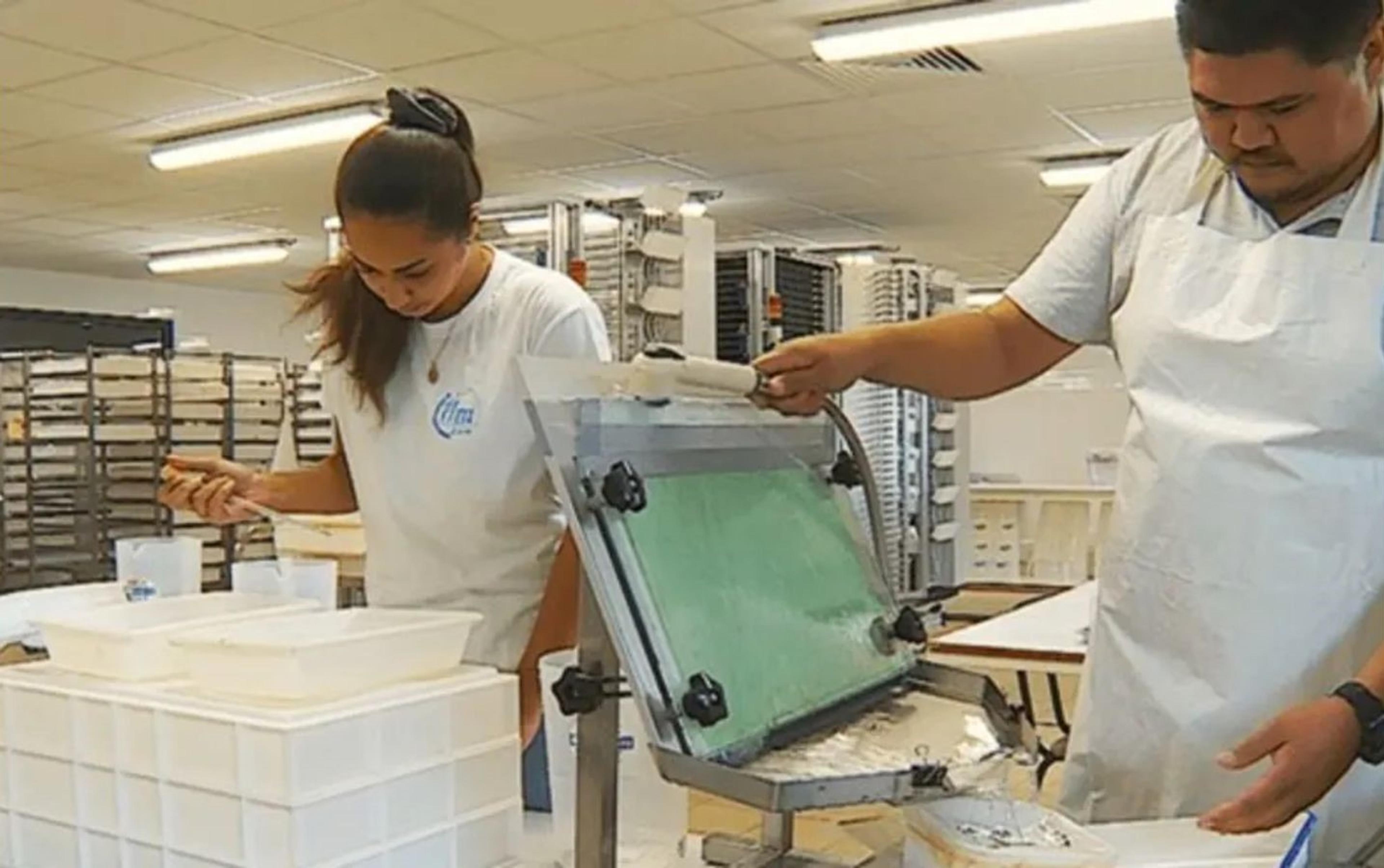

A sterile male mosquito breeding facility at the Louis Malardé Institute entomolgy lab.
Photo/Polynésie la 1ère
Mosquito makeover: Tahiti’s groundbreaking solution to disease
French Polynesia prepares for the release of genetically modified mosquitoes hoping to combat spreading illnesses.


Inked across lands: How Pacific tattoo art is thriving in Germany

US funding cuts threaten to 'dry up' future of Pacific scientists - expert



Inked across lands: How Pacific tattoo art is thriving in Germany

US funding cuts threaten to 'dry up' future of Pacific scientists - expert

Building on a successful decade-long pilot project on the atoll Teti’aroa, the innovative method involves the strategic release of sterilised male Aedes Aegypti mosquitoes.
The process sees the release of sterile males that will "contaminate" females, rendering them sterile and thereby naturally reducing the proliferation of the disease-bearing insect population.
The Louis Malardé Institute's entomology laboratory says they have now developed an X-ray device that can mass-sterilise the males.
Mosquitoes are responsible for transmitting such diseases as dengue, malaria, zika, chikungunya, or filariosis, causing millions of deaths worldwide.
The 50-year old institute can now produce a staggering 250,000 sterile male mosquitoes weekly, ready to be deployed in affected areas.
Set to expand beyond Teti’aroa to reach the small town of Paea in July, then eventually covering the entire island of Tahiti.
French Polynesia is taking a groundbreaking initiative to address public health concerns and demonstrate a commitment to finding environmentally friendly solutions to curb disease spread.